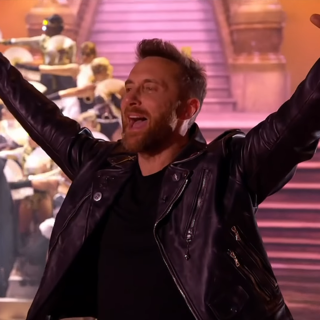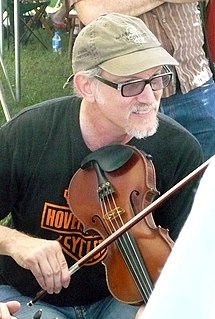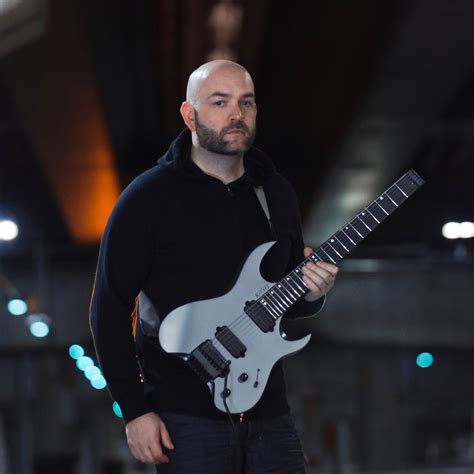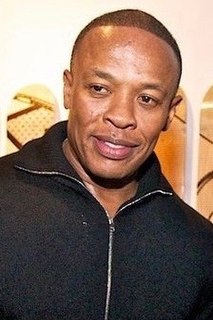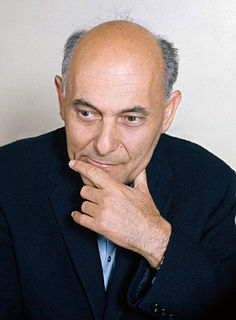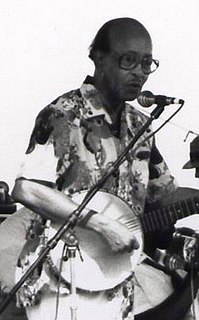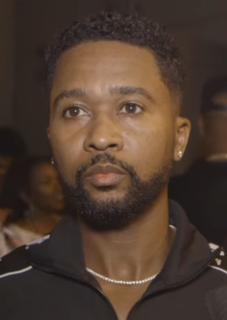A Quote by Stephen Mallinder
You don't have to be trained in music to create sounds and to produce and release music. That's what we were saying back in 73-74. And that's the way the world is now - and all the tools of creation, production and dissemination are there in everybody's bedrooms, front rooms and studios.
Related Quotes
Technology has altered the way music sounds, how it’s composed and how we experience it. It has also flooded the world with music. The world is awash with (mostly) recorded sounds. We used to have to pay for music or make it ourselves; playing, hearing and experiencing it was exceptional, a rare and special experience. Now hearing it is ubiquitous, and silence is the rarity that we pay for and savor.
The way you hold the bow, the way that violinists are trained to produce a note, is really different. I'm not an expert in classical music. I don't want to say something that ends up in print and somebody comes running after me with a shovel, but they're taught for each note to stand alone in a very deliberate kind of way, which is really different than how notes are strung together in old-time music to create rhythm.
Now, in the sixties we were naive, like children. Everybody went back to their rooms and said 'We didn't get a wonderful world of just flowers and peace and happy chocolate, and it won't be just pretty and beautiful all the time,' and just like babies everyone went back to their rooms and sulked. 'We're going to stay in our rooms and play rock and roll and not do anything else, because the world's a nasty horrible place, because it didn't give us everything we cried for.' Right? Crying for it wasn't enough.
Indie music is 'it' now. It's kind of a revolution to the music: 1980s, 1990s music was getting very sanitized; they were complying with the music industry. Music was getting more and more dead in a way. Now, because of the social climate that's very severe, the artists are compelled to start being real. It's really great that indie music is now.
I don't do anything digital. Everything is analog, and that's a limitation for me. However, in my world, it's not a limitation at all because I don't create the type of music that would generally be created by musicians that work with digital recording studios, and/or digital equipment, as far as production is concerned.
I love writing, composing and producing music. It's what I enjoy doing most in life and I create so much material that crosses over so many different styles that it would be virtually impossible to release all under one name/project. That's mainly why I like to create aliases and work on production for other artists as well. It just make sense. I just want to be able to have an outlet for all the different styles of music that I like working in.
One of my pleasantest memories as a kid growing up in New Orleans was how a bunch of us kids, playing, would suddenly hear sounds. It was like a phenomenon, like the Aurora Borealis -- maybe. The sounds of men playing would be so clear, but we wouldn't be sure where they were coming from. So we'd start trotting, start running-- 'It's this way! It's this way!' -- And sometimes, after running for a while, you'd find you'd be nowhere near that music. But that music could come on you any time like that. The city was full of the sounds of music.
Guys like Future and me, we help create and shape the sound of music - not just Atlanta music, but music all over. If you really pay attention to the music being made, a lot of that is very heavily influenced by the stuff that we created. I listen to so many songs that's like, 'Damn, this sounds like my music!'
Music was literally in the air at the time, the Vienna of 1780. Everybody played music, classical music. There were in fact so many musicians that in apartment buildings people had to come up with a schedule - you practice at 5 p.m., I'll practice at 6 p.m. That way the music didn't collide with one another.

